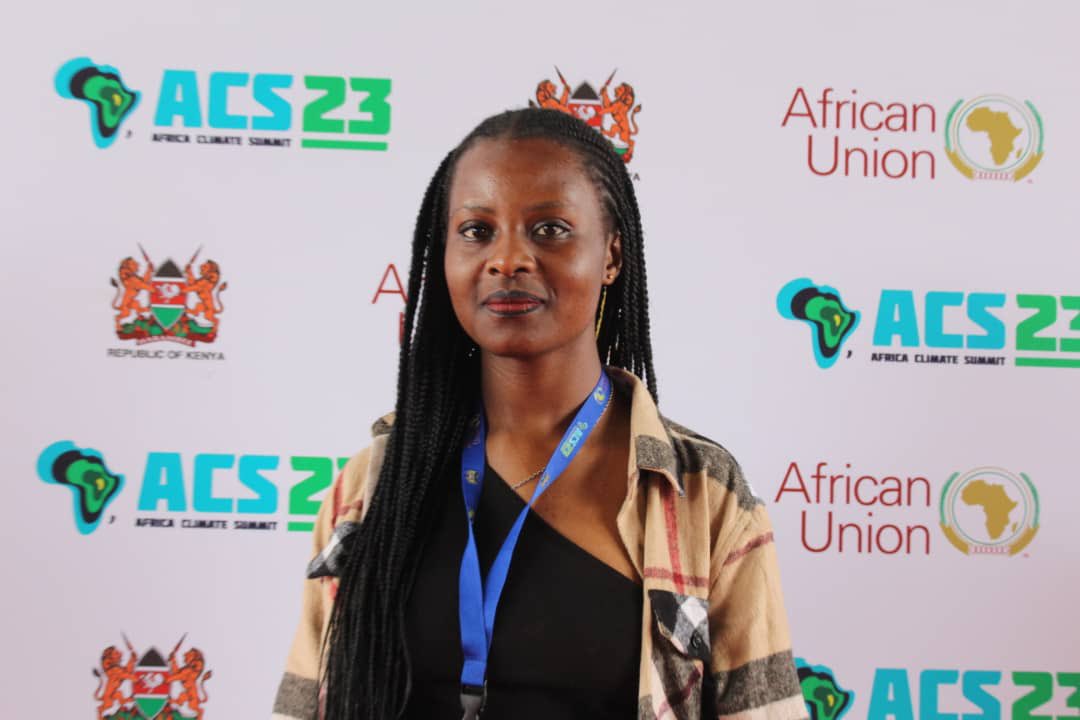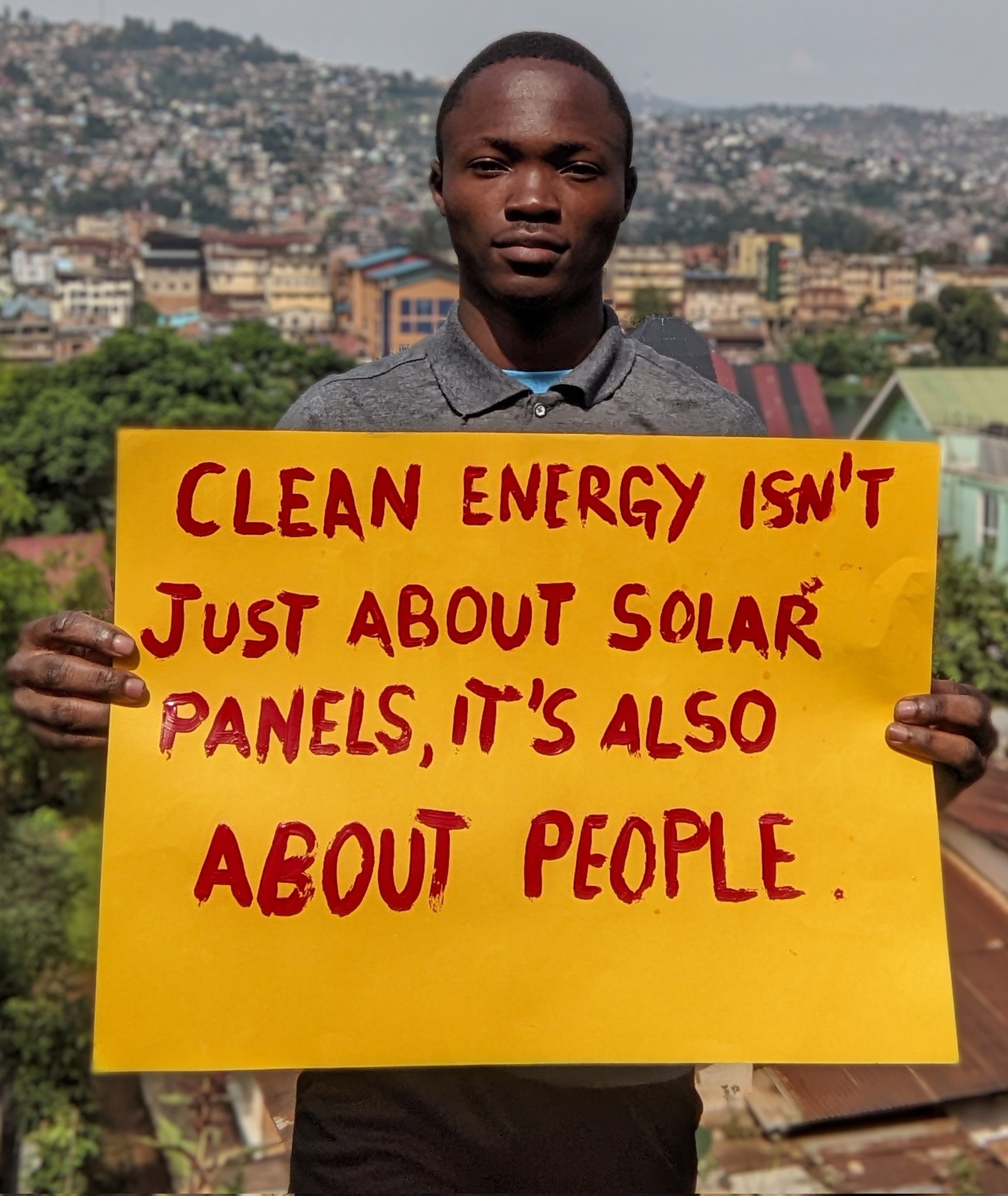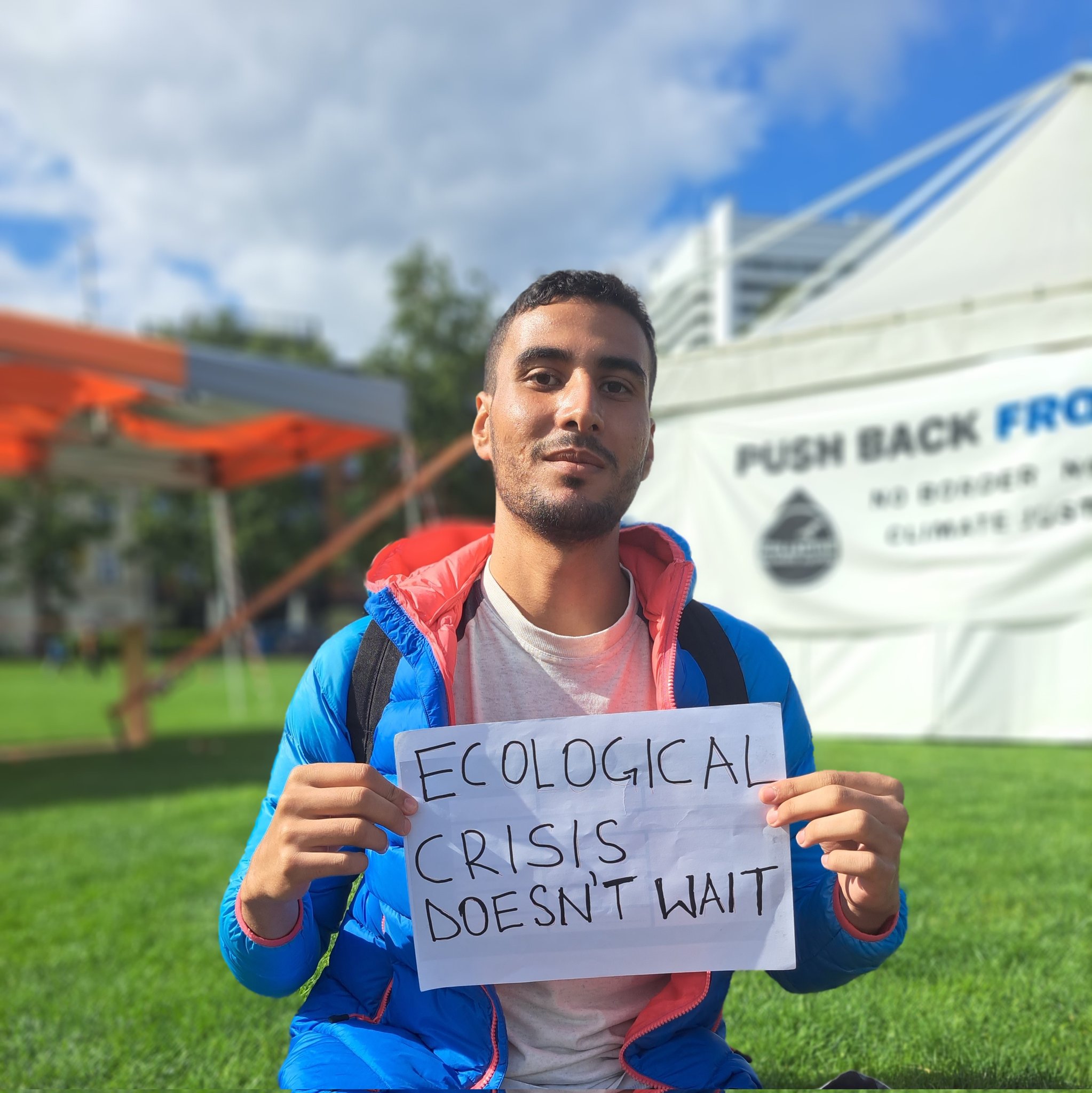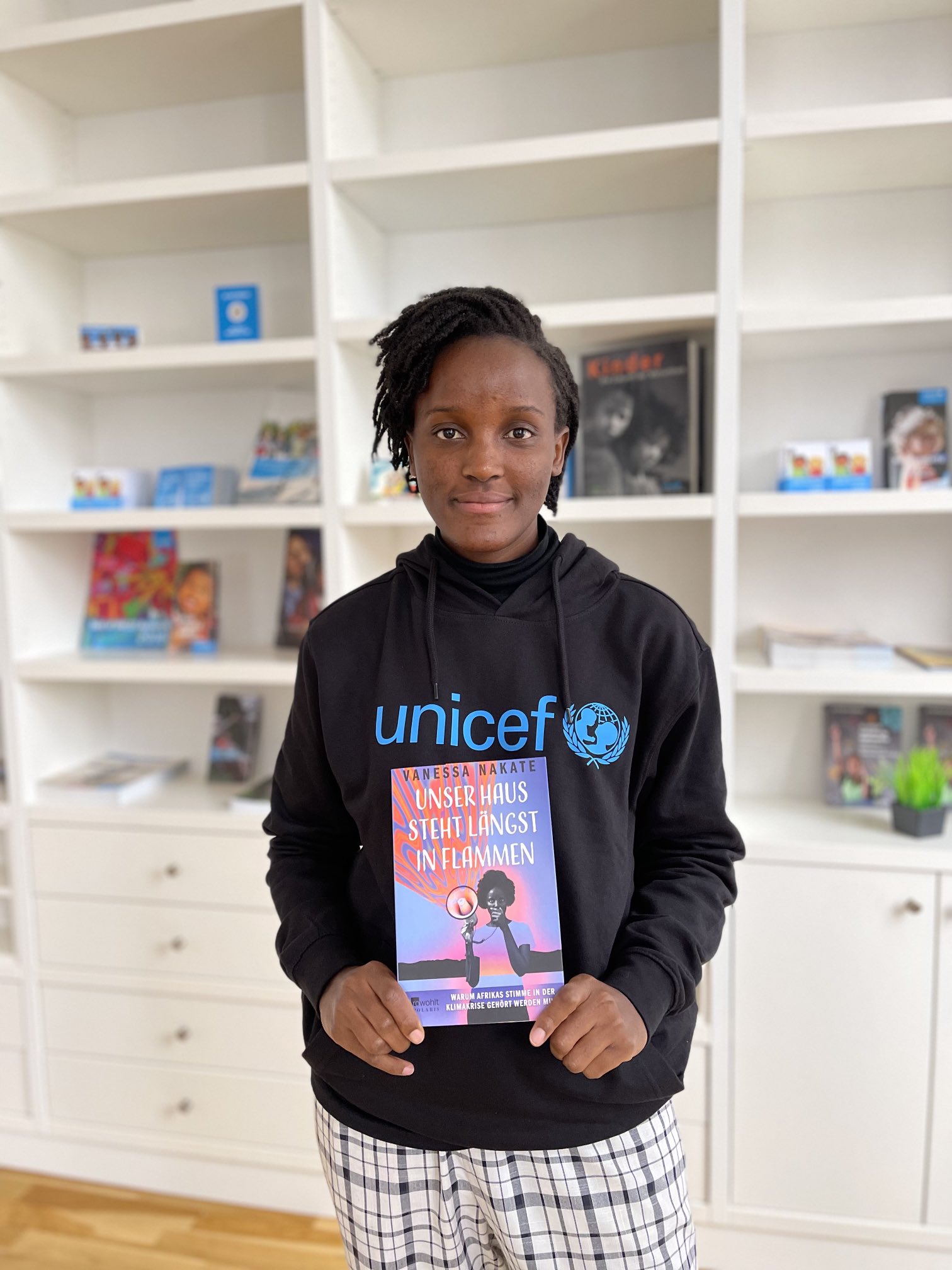The biggest snag to environmental activism in Africa is an overwhelming lack of awareness among the continent’s teeming poor about climate change and environmental degradation. A large part of the activism on the continent has to do with sensitisation and environmental education.
By Chimezie Chika
Africa — with its wild, contrasting landscapes ranging from deserts, savannas and grasslands to mountains, lakes, rivers, rain forests, and its unique faunas — has fascinated humanity for long. That fascination, and anthropomorphic activities, have led (as is also the bane in other parts of the world) to deforestation, desert encroachment, oil spills, animal poaching, and all sorts of environmental despoliation wrought and perpetuated wholly by humans — Africans and Europeans — at different points in history. Some of these activities include poor farming practices (such as burning), mining and oil drilling, game hunting and poaching of endangered fauna, and chemical effluent from factories. There are many ways through which the environment is being depleted; listing them all here will possibly turn this into an unpalatable jeremiad.
In recent times, we have started to see more and more the decimating effects of environmental degradation in Africa. News of massive flooding, desertification, and drought have become very frequent indeed and reveal that climate change is (not a distant prophecy of doom) a real, tangible danger for Africa and the planet at large. Ultimately, it has come to that point where we have realised that if we are not careful about sustaining the environment that gives us life and sustenance, we may, by our own irrational march toward what we often call “civilisation”, cause not only a mass extinction of animal and plant life but also our own extinction on earth.
Sequel to this realisation, agitations for environmental preservation and sustainability began to rise in the late 1960s and 1970s. What became the environmental revolution birthed many social and ideological movements dealing exclusively with natural conservation and ecological rejuvenation and sustainability, and were championed by individual environmental crusaders including the likes of Rachel Carson, David Brower, James F. Philips, Gaylord Nelson, Francoise d’Eubonne and Greta Gaard.
At the international level, countries synergised through the United Nations Framework Convention on Climate Change (UNFCCC) to combat climate change. The annual meeting of the parties to Framework, tagged the Conference of Parties (COP) has been held every year in designated cities around the world since 1995. Each conference tries to tackle exigent environmental issues of contemporary relevance and set legal parameters for critical ecology and conservation and best environmental practices. One example is the adoption of the Kyoto Protocol — a legally binding mandate to developed countries to reduce greenhouse emissions. The COP meetings have become a gathering of individuals and organisations involved in environmental activism. The 2022 COP 27 in Sharm El Sheikh, Egypt, the fourth to be held in Africa, highlighted the continent’s crucial role in the fight against climate change, and reached an agreement on Loss and Damage compensation for poor countries experiencing climate change (It goes without saying — for one only has to look at the economic and the environmental ramifications of the ever-increasing population, poor mining and drilling methods in places such as the DR Congo and Nigeria, and frequent droughts in countries like Mauritania, Somalia, Mali and many others in every region of the continent.).
Some of the most prominent individuals at the vanguard are young people born in the late 1990s and early 2000s — the Gen Zs. One famous example is the young Swedish environmentalist, Greta Thunberg, who at fifteen addressed the COP24 meeting held in Katowice, Poland, in 2018, where her chilling speech included the phrase, “How dare you?”, which she chastisingly aimed at the gathered world leaders for their inaction in the face of environmental threats. Thunberg’s fierce intrepidity is today also part of the uncompromising characters of Gen Zs in Africa who are taking matters of environmental import into their own hands, where governments have failed.
In a continent known for its intransigent slowness in adopting progressive methods, the necessity of young environmental activists canvassing and creating awareness against environmental degradation is doubly important. Some of these young warriors are noted for the pointedness of their focus on different aspects of the environmental impasse in Africa.
The biggest snag to environmental activism in Africa is an overwhelming lack of awareness among the continent’s teeming poor about climate change and environmental degradation. A large part of the activism on the continent has to do with sensitisation and environmental education. On this challenge for Africa, the words of the great Kenyan environmental activist and Nobel Peace laureate Wangari Mathaai, hit the problem squarely: “You cannot protect the environment unless you empower people, you inform them, and you help them understand that these resources are their own, that they must protect them.”
The work of the 23-year-old Zimbabwean environmental activist, Tafadzwa Kurotwi, highlights the need for sensitisation and empowerment, especially for rural dwellers. Kurotwi’s evolution as a climate change activist began in 2015 when she noticed the visible impact of climate change on her parents’ farm. Her parents’ lack of information on how to deal with natural disasters left the farm devastated. From this personal history of loss and destruction, Kurotwi saw the importance of education, information, and other empowerment initiatives in fighting climate change in Africa. Becoming a junior councillor in her high school in Harare, she began to study and speak about it regularly.

Subsequently, she co-founded Emerald Climate Hub, an organisation fighting global warming at the grassroots by bringing youths into environmental awareness and effecting the use of sustainable strategies in rural communities. Though it first began as a WhatsApp group, Emerald Climate Hub has planted over 300 trees in her community alone. They have also managed to run educational and advocacy campaigns, informing and teaching to initiate and find sustainable climate solutions, especially through innovation and technology.
#InternationalDayofEducation,a day to celebrate the transformative power of knowledge and its role in shaping a better future. A call to action,urging us to harness #education as a force for positive change,not just for individuals,but for our planet and its collective prosperity https://t.co/3BghyabfW3
— Tafadzwa Malaika Kurotwi (@TKurotwi) January 24, 2024
In 2022, while attending UNFCCC COP27 in Egypt as a youth delegate, she witnessed presentations that drove home to her the magnitude of global warming and climate change issues confronting our planet and she understood why African governments and Africans need to sit up and adopt sustainable measures to combat the rising impact of climate in Africa.
This need to create awareness is one that drives 25-year-old Congolese Biologist and environmental activist, Guillaume Kalonji. Professing that he was inspired to take up climate activism through the work of young environmentalists, Vanessa Nakate and Greta Thunberg, Kalonji has maintained a sustained interest in the numerous ecological problems confronting his country. He has called out mining companies for environmental despoliation. One such campaign is against the 27BP3BG Project, an oil exploitation project that poses a real danger to the ecosystem of the vast Congo basin. He has also been involved in campaigns against deforestation and illegal logging in the forests to make charcoal and has instead sought to create sustainable solutions to the use of charcoal.
We lost more than 400 people on Thursday 04 May 2023, after a rain in Kalehe (Eastern Congo). Meanwhile, Shell boasts of having benefited more than 7 billion just for the first quarter of this year. You benefit there, we die here. It is time to stop climate imperialism. #ActNow pic.twitter.com/uN16Z7dhli
— Guillaume KALONJI 🇨🇩🌍 (@Guillaume0905Kl) May 9, 2023
He has also consistently raised the issues of plastic pollution and climate change in DR Congo. Having attended many international climate conferences, Kalonji initiated personal environment-focused projects such as organising training campaigns to teach young people in Francophone African countries about climate change through his work as the Congolese national director of the Rise Up Movement, an environmental organisation. In his home country, this project has allowed him to raise awareness among 1,500 students in the cities of Bakavu and Kinshasa.

His other upcoming projects include Ecoback Congo (a company that makes bags from secondhand clothes); Ecology for All (an organisation involved in environmental/climate education); and Plastic in Bricks (construction of bricks using non-biodegradable plastic bottles.
Young Tanzanian environmentalist, Regina Magoke, is one of those working to keep Africa green through afforestation projects. At just 21, she has already drawn attention to herself and her nonprofit, Green Sphere Initiative, which is working to clean up the beaches of her town, Mwanza, on the banks of Lake Victoria. Aside from planting trees, Green Sphere is also raising environmental awareness through teaching campaigns in the community. The organisation is always initiating projects around mitigating and sensitising young Tanzanians on climate and hopes to gain financial support to increase their range.

Another remarkable 21-year-old involved in similar projects is Aqlila Alwy from Malindi in Kenya, a small coastal city known for its mangrove swamps. Through her organisation, Blue Earth, Alwy is working to restore the despoiled ecosystem and biodiversity of the surrounding mangrove swamps. Her journey as an environmentalist arose from her experience of witnessing environmental devastation in the Malindi and Makupe conservation area (a disaster purported to have been caused by deforestation). Subsequently, she has been involved in the restoration of the mangrove through Blue Earth while the community provides the tree seedlings. Her work, she said, is centred around preventing looming drought and its attendant food crises.
Part of Alwy’s work is focused on young girls. She has run several teaching campaigns in schools in Malindi and environs, teaching young girls about gender equality and climate change, and these two factors can give them the power to make genuine changes in their communities.

In North Africa, a region dominated by the great dry Sahara desert, issues ranging from drought, water scarcity, and desertification are real everyday threats. But even here, young climate warriors are also diligently applied to fighting climate change. In Tunisia, 24-year-old Mariem Jradi has been fighting against pollution and greenhouse emissions through the organisation, Stop Pollution (which started with five friends), in the city of Gabes, Tunisia, where it campaigns against the pollution caused by chemical industries in the region.
Focusing on the environmental devastation caused by indiscriminate industrialisation, Jradi seeks avenues to raise awareness about climate change contributors such as chemicals and plastic waste. She is also involved in raising awareness about water scarcity caused by desertification in Tunisia and collaborated with UNICEF on research around water scarcity in the country.

Two borders away, in Morocco, 21-year-old Mohammed El-hajji, a student at the Sidi Mohamed Ben Abd Allah University in Fez, has garnered widespread attention as a climate activist. Growing up in the surrounding rural, agricultural region of Fez, he saw firsthand the effects of climate change in declining agricultural yields and the chemical pollution of nearby industries. Incensed by these issues, El-hajji began to speak out against the official neglect of the environment by the Moroccan government. A brilliant and outspoken organiser, El-hajji has gotten more young people involved in climate justice than many official efforts since 2020, through his directorship of the Moroccan branch of the Fridays For Future movement.

Ugandan climate activist, Vanessa Nakate, perhaps the most prominent young environmental activist to come out of Africa in the last half-decade, has inspired a lot of young people to take up the work of sensitising and raising awareness about climate justice. This cross-pollination of ideas and mutual inspiration bodes well for the future of the continent and for what Mathaai calls “empowerment”.

Beginning in 2019, Nakate began a solo campaign against climate crises in Uganda, protesting for several months outside the Uganda parliament in a solo show of great spirit and resilience. Later in December that year, she spoke about it at the COP25 in Spain alongside young activists, Thunberg and Alejandro Martinez. She has subsequently given speeches at many similar gatherings around the world, raising awareness about the danger of climate change in her home country Uganda and Africa. Having founded the Youth for Future Africa group and the Rise Up Movement, an organisation involved in climate and environmental restoration and justice, she revealed that her motivation for taking up climate change is because of the danger that agriculturally dependent nations like Uganda face in the event of a climate catastrophe.
Speaking at the Desmond Tutu International Peace Lecture in 2020, she urged world leaders to “wake up” and take immediate and lasting actions to address climate change. “Climate change is a nightmare that affects every sector of our lives. How can we eradicate poverty without looking at this crisis? How can we achieve zero hunger if climate change is leaving millions of people with nothing to eat? We are going to see disaster after disaster, challenge after challenge, suffering after suffering . . . if nothing is done about this.” According to her, world leaders have failed to see that climate change is an urgent crisis of great magnitude for our planet; she ties its contributing factors in Africa to poverty, hunger, disease, incessant internecine conflicts, and violence against women.
The biggest realisation for all young people across Africa (indeed for African peoples of all ages) is that climate change is the real challenge of our contemporary world. It is the biggest existential threat to human life on Earth. That young people – the Gen Zs – are taking up this fight, is nearly an affront to the decision-makers all over Africa. This is a call then, a loud call for African governments to take up this mantra, to double down in their efforts, or to start as soon as possible (if they haven’t) to tackle the issue of climate change and environmental despoliation. Given the diversity and fragility of the African landscape, environmental preservation is a necessity for Africa, not a favour.
Chimezie Chika’s short stories and essays have appeared in, amongst other places, The Republic, The Shallow Tales Review, Iskanchi Mag, Isele Magazine, Lolwe, Efiko Magazine, Brittle Paper, and Afrocritik. He is the fiction editor of Ngiga Review. His interests range from culture to history, art, literature, and the environment. You can find him on Twitter @chimeziechika1.




